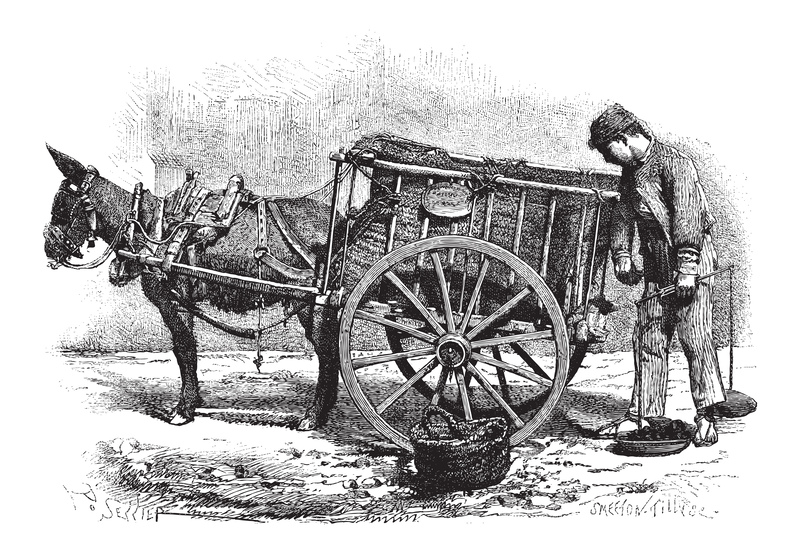Optimizing Waste Management: 10 Tips to Reduce Green Waste
In an era where environmental conservation is of crucial importance, optimizing waste management, particularly reducing green waste, has become more relevant than ever. Green waste, which includes organic matter like leaves, grass clippings, and food scraps, can be a valuable resource if managed correctly. By reducing green waste, you not only help the environment but also contribute to a more sustainable lifestyle. Below are ten practical tips to assist you in minimizing green waste.
1. Composting: Transform Waste into Nutrient-Rich Soil
One of the most effective methods to reduce green waste is through composting. This natural process involves breaking down organic matter and turning it into rich soil. Setting up a compost bin in your backyard can significantly decrease the amount of waste that ends up in landfills. By doing so, you not only manage waste effectively but also enrich your garden with nutrient-rich compost that supports plant growth.
Benefits of Composting:
- Reduces landfill waste: Every ton of organic waste composted is one less ton sent to the landfill.
- Improves soil health: Compost adds essential nutrients back into the soil.
- Decreases methane production: Organic material decomposing in landfills produces methane, a potent greenhouse gas. Composting reduces this.

2. Mulching: A Protective Layer for Your Garden
Mulching is another effective technique to minimize green waste. It involves spreading organic material like grass clippings, leaves, or bark over the soil. This method not only reduces waste but also offers multiple benefits for your garden.
Advantages of Mulching:
- Retains soil moisture: Mulch helps in retaining soil moisture, reducing the need for frequent watering.
- Suppresses weeds: A layer of mulch can impede weed growth by blocking sunlight.
- Improves soil fertility: As mulch decomposes, it enriches the soil with nutrients.
3. Practice Smart Landscaping
Smart landscaping involves designing your outdoor spaces in ways that reduce waste. Opt for plants that are native to your region, as they require fewer resources and generate less waste. Incorporate xeriscaping, which uses drought-tolerant plants to minimize water use and green waste.
Landscaping Tips:
- Choose the right plants: Native plants are adapted to the local environment, reducing the need for excessive pruning and waste production.
- Implement sustainable gardening: Use organic fertilizers and pest control methods to reduce environmental impact.
4. Implement Grasscycling
Grasscycling is the practice of leaving grass clippings on the lawn after mowing. This simple habit can greatly reduce green waste while providing benefits to your lawn.
Benefits of Grasscycling:
- Reduces lawn waste: Eliminates the need to bag clippings, minimizing waste.
- Improves lawn health: Grass clippings decompose quickly, returning valuable nutrients to the soil.
5. Plan Your Meals
Food scraps make up a significant portion of green waste. By planning your meals and being mindful of portion sizes, you can drastically cut down on waste.
Meal Planning Strategies:
- Shop with a list: Buy only what you need to minimize food waste.
- Utilize leftovers: Repurpose leftover food into new meals to avoid scraps.
6. Set Up a Community Garden
Community gardens offer a shared space for growing food, sharing resources, and reducing waste. By participating, you can engage in communal composting and gardening, cutting down on individual green waste.
Community Garden Benefits:
- Reduces individual waste: Collective gardening reduces the overall amount of waste produced.
- Promotes sustainable practices: Encourages recycling and reusing of materials.
7. Use a Backyard Incinerator
While not a solution for everyone, a backyard incinerator can be an option for burning small amounts of green waste. Keep in mind local regulations and environmental impacts before implementing this method.
Considerations for Backyard Incineration:
- Check local laws: Ensure compliance with environmental regulations.
- Minimize use: Only burn appropriate materials to avoid pollution.
8. Engage in Community Clean-Up
Community clean-up events target local areas, removing waste and promoting awareness. Engage with neighborhood events to help manage waste and build a sustainable community.
Benefits of Clean-Up Initiatives:
- Reduces localized waste: Cleans community areas, preventing green waste build-up.
- Raises awareness: Educates others about the importance of reducing waste.

9. Embrace Digital Gardening
Digital gardening involves using online resources to manage and plan your garden. Apps and websites provide tips on efficient landscaping and waste reduction techniques.
Benefits of Digital Gardening:
- Access to resources: Find guides and tips on reducing garden waste.
- Community support: Connect with online communities to share ideas and strategies.
10. Educate and Advocate
Education is a powerful tool in waste management. By spreading awareness and advocating for sustainable practices, you contribute to a broader movement to reduce green waste.
Ways to Educate and Advocate:
- Host workshops: Organize local events focusing on sustainable practices.
- Share knowledge: Use social media platforms to spread awareness and share waste reduction tips.
Optimizing waste management and reducing green waste is an ongoing effort that requires community involvement and personal responsibility. By adopting these 10 tips to reduce green waste, you can contribute to a more sustainable environment and promote healthier ecosystems for future generations.